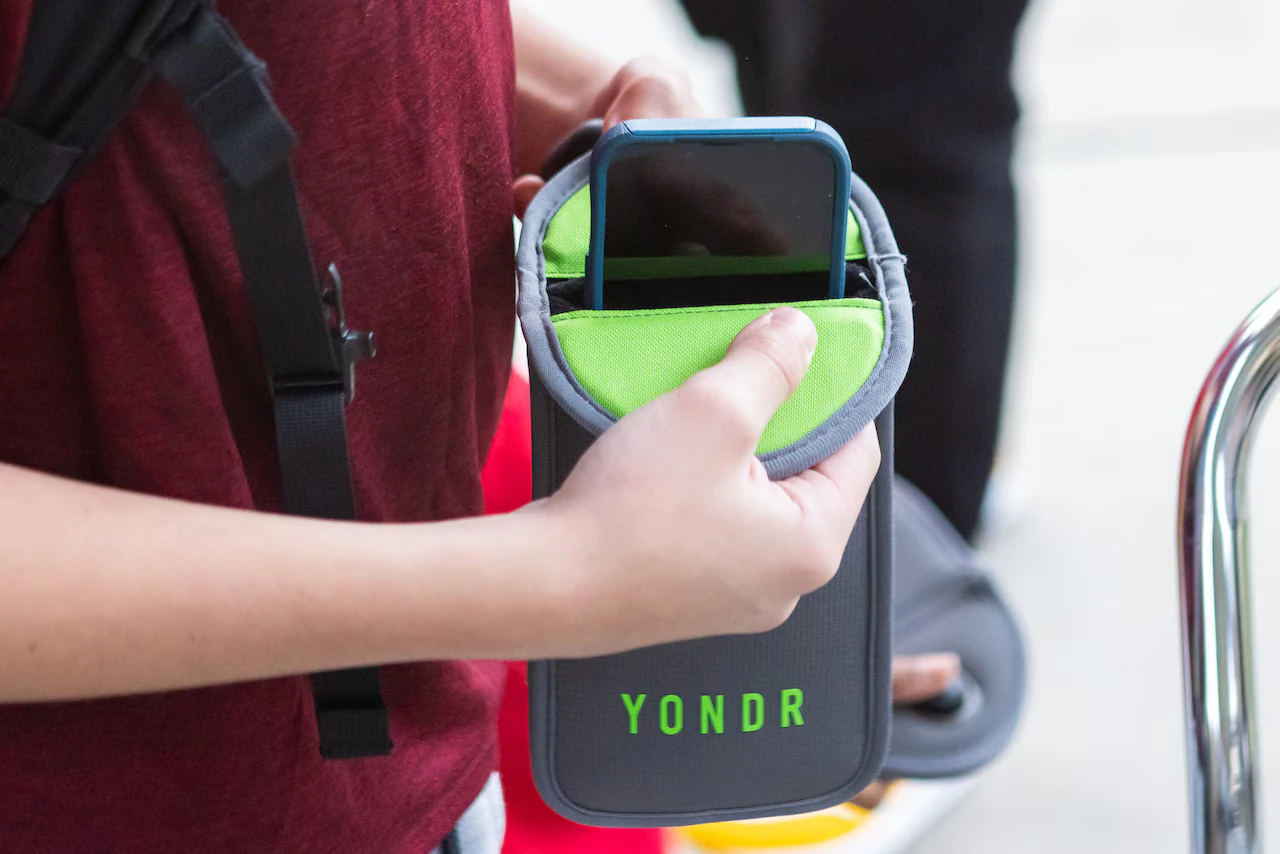Barnesville Schools Go Cell Phone Free

The Barnesville Exempted Village School District has adopted a no cell phone policy to stay in compliance with the state law.
The no cell phone policy covers the high school, middle and elementary schools.
After a law passed in the State of Ohio, all schools must adopt a policy prohibiting cell phone use by students during the instructional day by Jan. 1 2026.
The Ohio Department of Education and Workforce describes an “instructional day” as any period of time in which a student is expected to be in attendance and includes formal instruction as well as supervised activities, such as between classes, recess, meal periods and field trips.
The DEW emphasizes that without access to cell phones, students can focus on their surroundings, interaction with others and their education. School staff can spend more time teaching and supporting students.
The DEW research demonstrated cell phone policies can impact mental health and educational outcomes, including increases in productivity, reductions of bullying incidence and increases in girls’ grade point averages.
The law allows students to access their cell phones only for medical reasons or for direct educational reasons, such as using a cell phone to take photos in art class. The student’s individualized education program is developed according to Ohio law pertaining to the education of children with disabilities. The student’s plan complies with section 504 of the “Rehabilitation Act of 1973,” 29 U.S.C. 794, and includes monitoring student learning, addressing health concerns, or attending to an active threat or emergency, as detailed in the building’s comprehensive emergency management plan adopted under Ohio law.
BHS Principal Ron Clark said the Barnesville district put the no cell phone policy in place last school year, and although the Ohio law changed, the district stayed in compliance with it.
“We tried to just hammer it down early so it didn’t become an issue this year,” Clark said. “And it seems to be a whole lot less of an issue this year than it was last when there was resistance to it.”
Last year, schools were allowed to use cell phones for incentive based projects, such as Positive Behavioral Interventions and Supports (PBIS). The schools allowed the students to use their cell phones after lunch in the gym if they didn’t have behavior problems. Under the new law that is no longer allowed.
When students enter school, their cell phones must be put into their pockets, and they’re not allowed to access them. Some teachers have hangers on their doors for students to put their cell phones in pouches.
Clark said cell phones are an issue, describing it like, “It’s not a problem until it is.”
Clark emphasized how much cell phone usage in school can impact a student’s mental health. He said cyberbullying has increased recently. He noted more and more students have confronted him about someone posting pictures of someone else on snapchat, saying mean things or talking on twitter.
He added he feels students are more anxious now because they feel they need to always be checking their phones. Clark recommended reading the book, The Anxious Generation, which talks about the anxiety children have today surrounded by social media and the digital world.
He believes having no cell phone usage in school will lead to less anxiety and more socialization. Before, he said a lot of the time, students would just sit at lunch on their phones without interacting with each other, but now students are starting to talk more. He noted communication is an important skill for students to develop as they complete high school.
Another issue with cell phones in school is the use of artificial intelligence. He said it’s easy for students to take a picture of a math problem, and AI will solve the problem for them. He said AI has turned into a method of cheating.
The consequences for a student who is caught using their cell phone starts with a warning, then the device gets confiscated and parents retrieve it. Next is Saturday school, and finally Concentrated Conduct Adjustment Program (C-CAP) can begin.
“The big thing is, this is not going to be an overnight thing,” Clark said. “This is going to take several years and a lot of consistency in the school before it becomes natural for kids.”
Barnesville Area News Needs Your Support!
We're dedicated to providing coverage of the local happenings in Barnesville and the neighboring communities.
As a non-profit entity, we rely on the donations of readers like you.
Make a donation today and you'll be helping keep local news alive in the Barnesville area.


